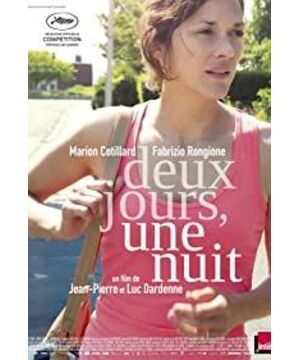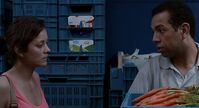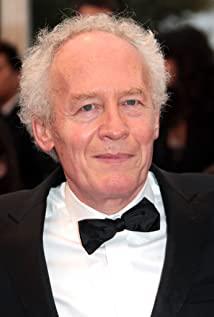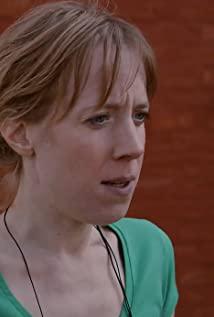Limited to two days and one night, the narrative of the film is very compact, and there is little room for emotional expression, even if there is, it stays in just a few minutes. The background of the story is quickly explained at the beginning of the film, and then Sandra begins her persuasion trip. I was disappointed once in the middle, and then cheered up again. The final vote was 8:8, Sandra failed to get more than half of the votes, and she left the company. There is a small episode: the boss (or manager) of the company finally proposed to let Sandra stay, which means that another temporary employee cannot renew his contract and face dereliction of duty, and this employee voted for Sandra to stay. So Sandra chose to leave by herself.
From the storyline, the audience will think this is a melodrama with ups and downs. There are struggles between people and people, the growth of the protagonist's personal psychological process, the so-called success or failure, and small episodes. In a Hollywood-style model, this will be a very "wonderful" movie, and the audience can feel positive energy from it. Sandra's story is an abbreviation of the American dream. Arguments about human nature can be projected.
But don't forget, this is a Cannes Palme d'Or shortlisted film, and it always has something special about it.
The Darney brothers are very restrained in their storytelling. The story has only one glaring suspense: the vote. And this suspense dragged on for 90 minutes. On the one hand, this reflects the level of storytelling of the writers (also the Darney brothers); on the other hand, this approach also challenges the patience of the audience. The audience needs to go with Sandra to experience the visits again and again, the helpless persuasion again and again, and the rejection many times. However, the most worth mentioning of the film is that in the 90-minute narrative time, it can be said that there is no sensational part, and there is no intense emotion. The dialogue is very ordinary, there is no inspirational language, and there is no desperate cry. In the most disappointing moments, the heroine doesn't even have a dialogue: the heroine takes all the pills for depression and then lays down to sleep. The use of music is also very restrained, which also reduces the possibility of sensationalism. There is only one place in the impression that more emotional music is used, and it is not the background sound. When Sandra drove home with her husband and colleagues, they all said that they liked rock and roll. The driving husband turned the volume up and the three of them sang along to the rhythm. But this paragraph takes less than a minute. At the end of the film, Sandra leaves the company and walks down a road, then the camera stops and the picture goes black, heralding the end of the film. Without background music, at first I thought that the movie did not use any sound effects at this time, but then I could vaguely hear the sound of cars passing by on the road, which also became an expression of the film's realism. The filming was almost done outdoors, and the movement of the lens made the audience feel that they were always in natural light. In addition, the general shooting techniques of documentaries: the follow-up of outdoor characters’ activities, a large number of close-up shots, and few free shots… all made the film There is a strong sense of reality. Therefore, although "Two Days and One Night" has a seemingly "wonderful" story, the result is "bland".
However, this "blandness" has formed the very attractive charm of this film, and it is also a rare "blandness". Of course, there are many films that have a "flat" aesthetic style, such as Yasujiro Ozu, Jia Zhangke, Hou Hsiao-hsien in Asia. But after these "flat feelings", there are always some personal feelings the director wants to convey, or the audience can feel the "sorrow" and "thinking" in it. As far as personal perception is concerned, "Two Days and One Night" does not bring complex thoughts, and it is difficult to feel the inspirational mood of the protagonist, the distress of the low-class life, and the sadness or irony of the story under the epitome of the financial crisis.
"Two Days and One Night" also raises the question: what does the movie bring us? When we have watched so many inspirational stories, had so many dreams, shed so many tears, and had so many profound thoughts, what does the movie mean? When we are already familiar with the routine of inspirational stories, know the logic of the dream machine of movies, understand the reasons for weeping, and discover that deep thinking (which is brought about by great films) is actually just another ideology (an opposition Do we still indulge in the charm of images when we operate the mainstream, existing ideology of ideology? Would you still be willing to sit in a dark theater and watch the "ever-changing" story of this dream machine? Can we still relate to these familiar stories, emotions and feelings? How will the audience's aesthetic style go? And how will the film develop? This is a question for the future.
Under such circumstances, it is not so important to judge a film. We need some movies to get our adrenaline pumping, we also need some movies to satisfy the experiences we can't get in reality, and we also need some movies to help us settle ourselves and think. Of course, we also need some movies like "Two Days and One Night", after watching it, it's as dull as if you haven't watched it. It doesn't matter whether they like it or not, and it doesn't matter whether it is good or bad. What the audience needs is all of their existence.
Because the story is here, and life is like that. No matter how many stories leave life, life will not be changed because of movies.
View more about Two Days, One Night reviews











